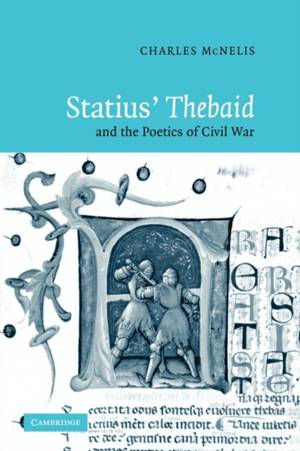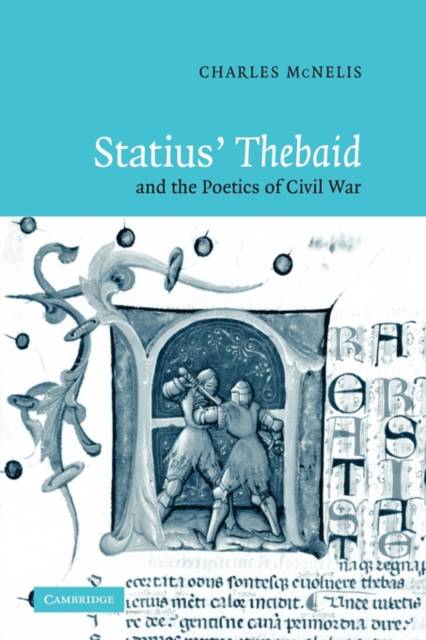
- Afhalen na 1 uur in een winkel met voorraad
- Gratis thuislevering in België vanaf € 30
- Ruim aanbod met 7 miljoen producten
- Afhalen na 1 uur in een winkel met voorraad
- Gratis thuislevering in België vanaf € 30
- Ruim aanbod met 7 miljoen producten
Zoeken
€ 67,95
+ 135 punten
Uitvoering
Omschrijving
This study focuses on ways in which Statius' epic Thebaid, a poem about the civil war between Oedipus' sons Eteocles and Polynices, reflects the theme of internal discord in its narrative strategies. At the same time that Statius reworks the Homeric and Virgilian epic traditions, he engages with Hellenistic poetic ideals as exemplified by Callimachus and the Roman Callimachean poets, especially Ovid. The result is a tension between the impulse towards the generic expectations of warfare and the desire for delay and postponement of such conflict. Ultimately, Statius adheres to the mythic paradigm of the mutual fratricide, but he continues to employ competing strategies that call attention to the fictive nature of any project of closure and conciliation. In the process, the poem offers a new mode of epic closure that emphasises individual means of resolution.
Specificaties
Betrokkenen
- Auteur(s):
- Uitgeverij:
Inhoud
- Aantal bladzijden:
- 216
- Taal:
- Engels
Eigenschappen
- Productcode (EAN):
- 9780521123617
- Verschijningsdatum:
- 19/11/2009
- Uitvoering:
- Paperback
- Formaat:
- Trade paperback (VS)
- Afmetingen:
- 152 mm x 229 mm
- Gewicht:
- 322 g

Alleen bij Standaard Boekhandel
+ 135 punten op je klantenkaart van Standaard Boekhandel
Beoordelingen
We publiceren alleen reviews die voldoen aan de voorwaarden voor reviews. Bekijk onze voorwaarden voor reviews.











